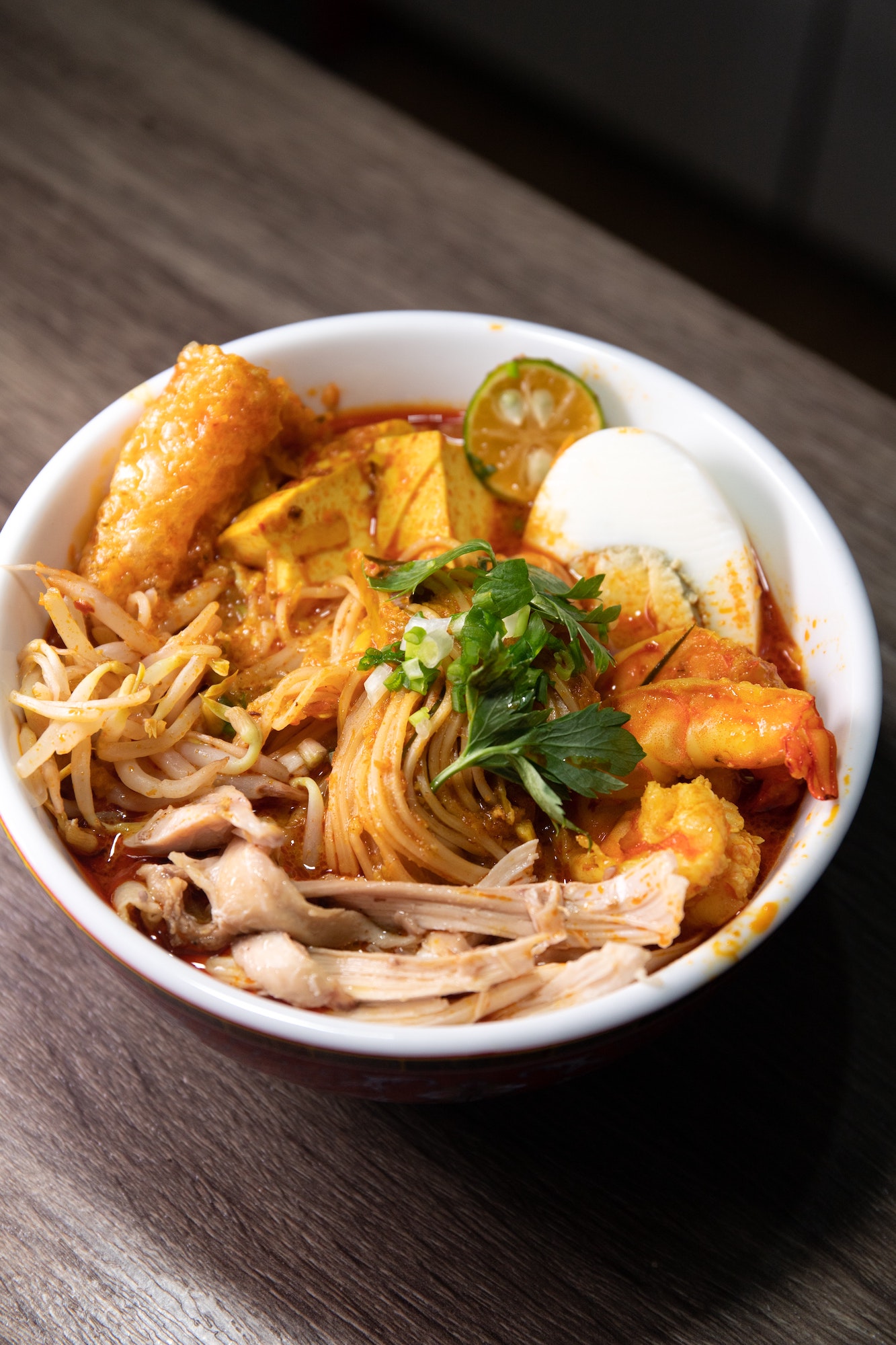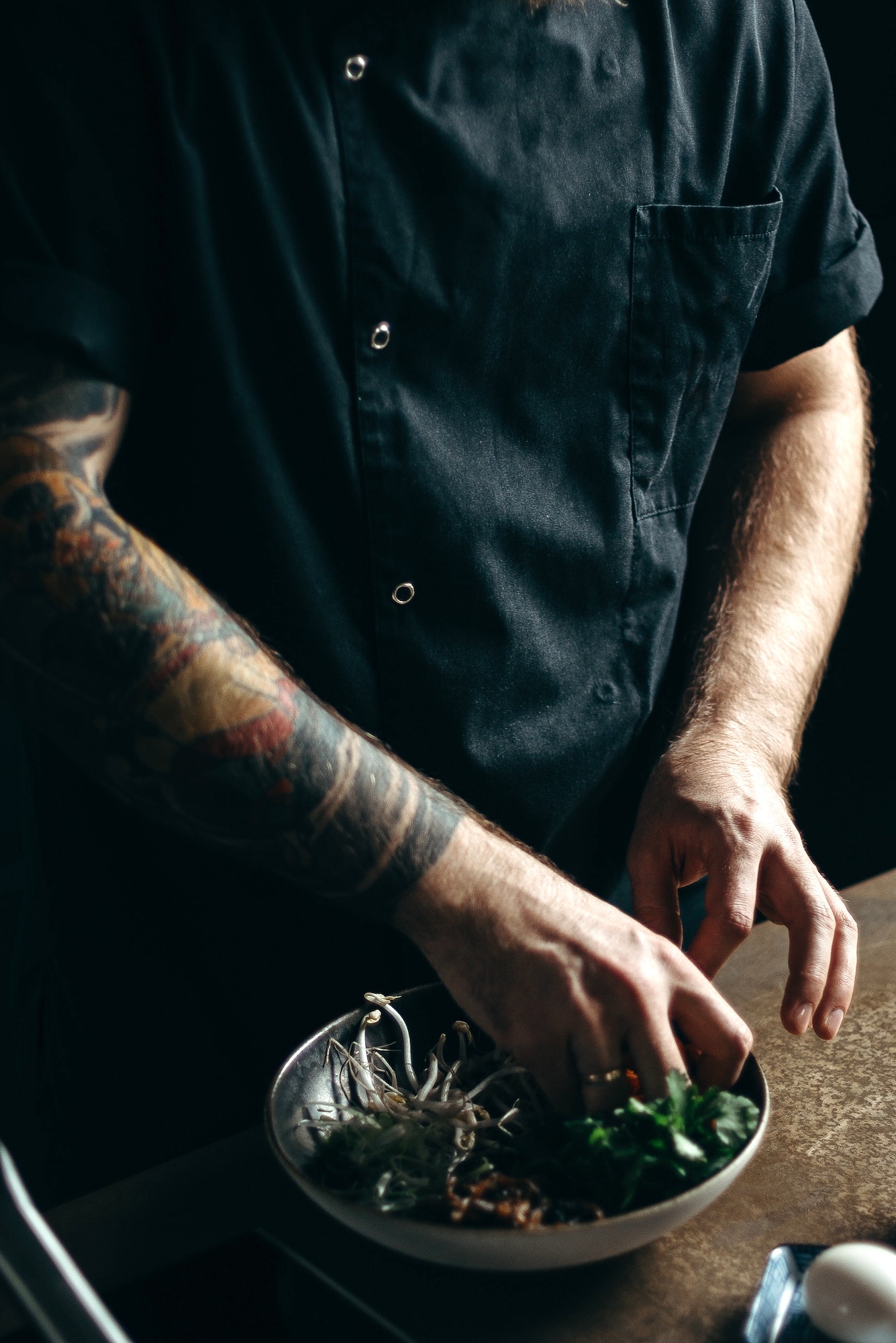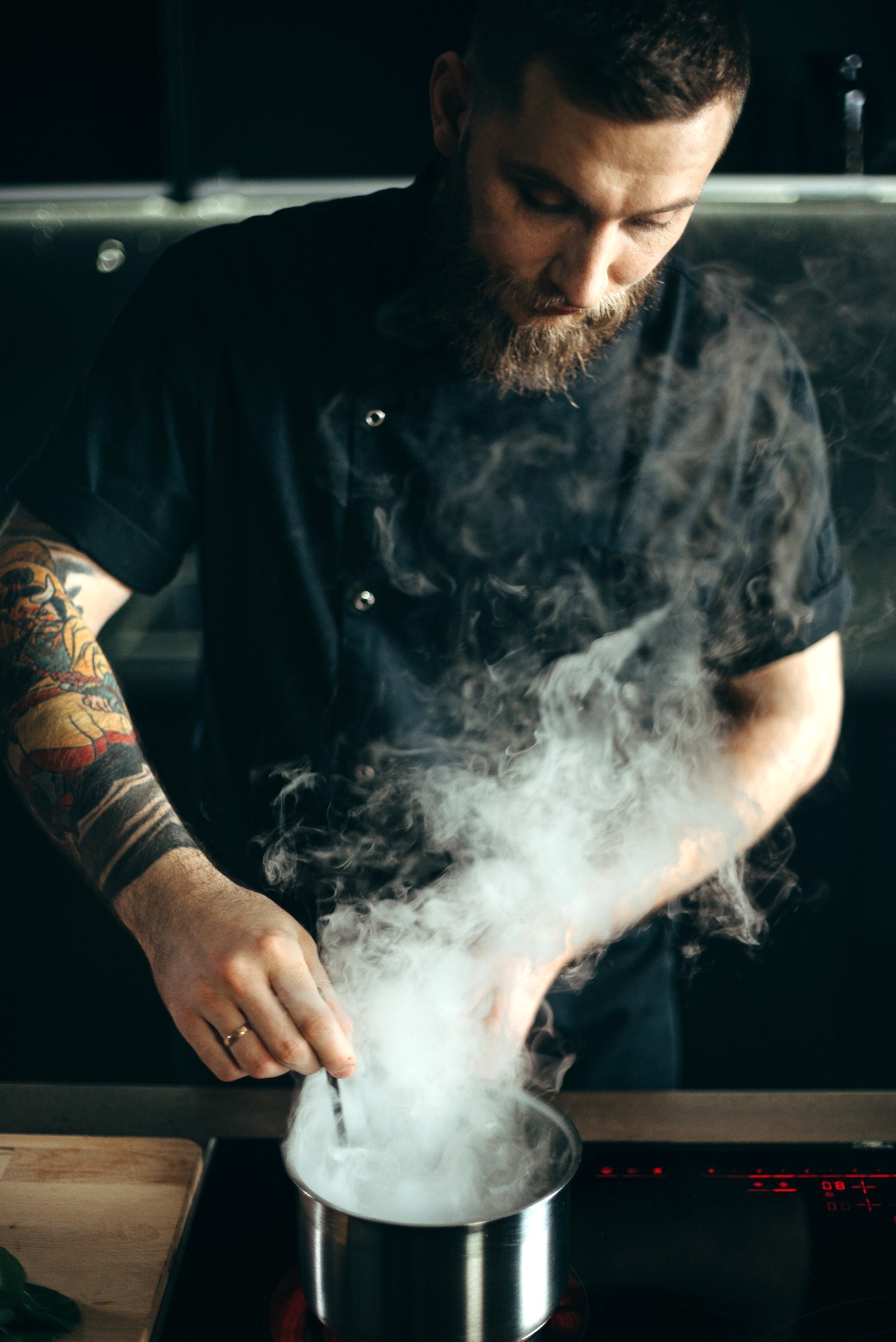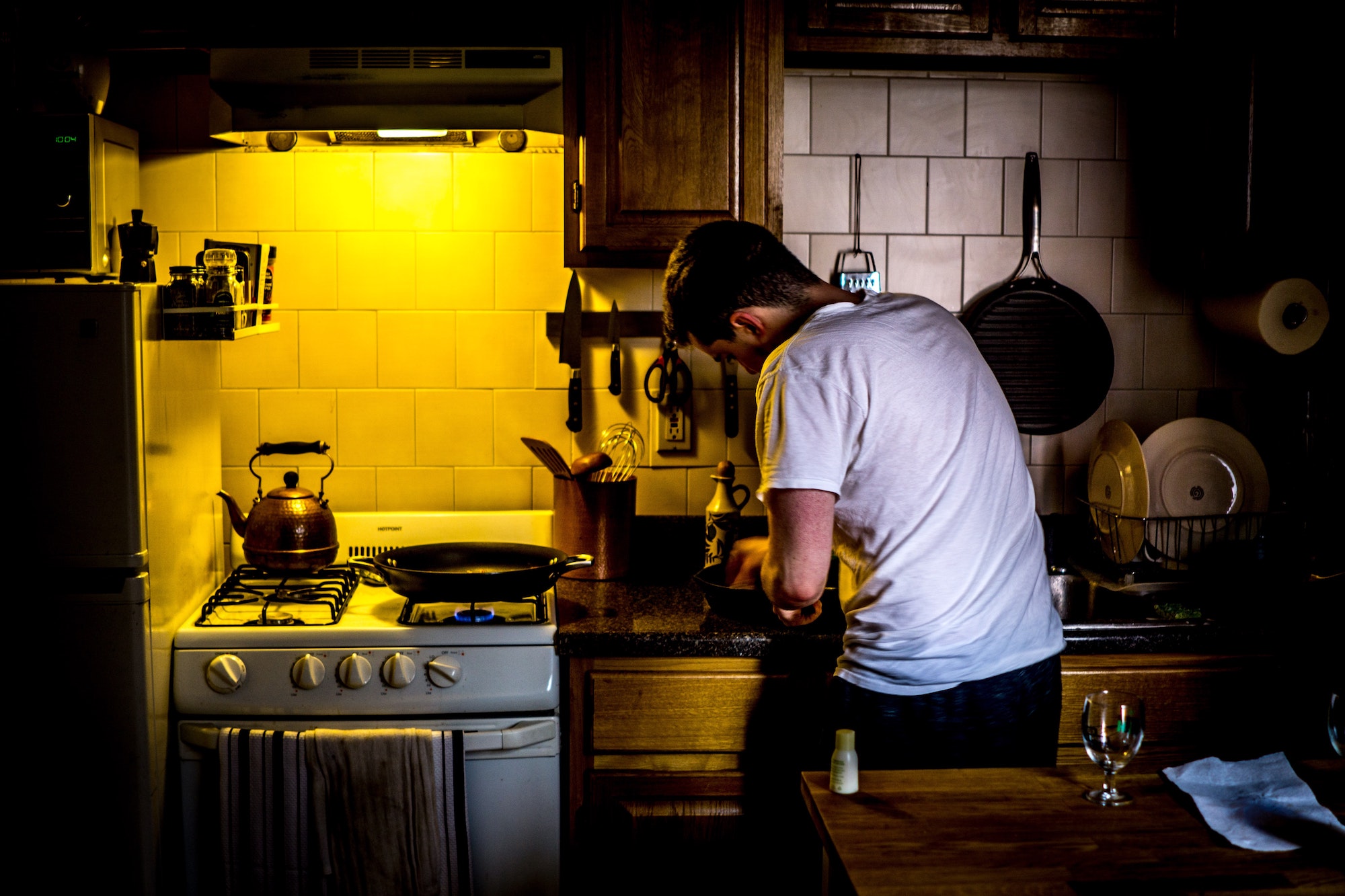The popularity of online classes has grown rapidly on a global scale since the onset of the pandemic. And now, in a world that has accepted the pandemic as—in some way or another—here to stay, some writers in other parts of the world are at the point of pitting online cooking classes against each other. Such writers point fingers at which courses are “worth your time or money or both.”
Locally, this niche industry is still at its birthing stage. Businesses intrigued on meeting the new demand for online classes are quickly scared away by high barriers to entry: patchy internet connections, resurging road traffic, and the delivery of perishable goods in an archipelagic country, to name just a few.
Enderun Extension, Enderun Colleges’ resource for continuing education, tries to meet this demand by offering a range of courses that cater to those keen on practicing culinary arts—be that in some fantastic global kitchen, or at home where you literally live with your harshest critics.
Chef See Cheong Yan’s curry laksa
In late October, I found myself—suddenly—a number in the demand for online culinary courses. As proud as I was of my omelette skills most adequately displayed on my single-burner electric stove, I simply wasn’t ready to make a dish whose name in Sanskrit meant “one hundred thousand” with reference to the number of possible ingredients that went into the dish.

Much less was I equipped—neither with the equipment nor the experience—to chuck my best shot at a version prepared by chef See Cheong Yan with his over 20 years of experience in China, Switzerland, the Philippines, and a good many more destinations.
I’d dare say that over the week of this course, chef See, the culinary head at Enderun Colleges, was going to be making a decent home cook—hardly a genius—out of an omelette-loving amateur.
Structure built for learning
The course, which began on Oct. 22 and culminated on the morning of Oct. 30 with a Zoom meeting, falls under the banner of the Online Culinary eXperience platform. This was created in partnership with École Ducasse, an institution that has been operating as a training center in France for over 12 years, and which aims to craft a new generation of global culinary professionals.
The idea is that participants are introduced to the neatly packaged and labeled ingredients, given the adequate online tools to prepare the meal, and then discuss their challenges with the chef—all the while gaining an understanding of the dishes’ origins and fine-tuning their cooking method.
The goal of École Ducasse’s partnership with Enderun Colleges? Maintaining the “most adapted cooking program,” which offers “cutting-edge culinary principles and fundamental training, while also maintaining a healthy exchange of ideas,” the program description states.
By extension, getting this writer to make a decent laksa.
This home course comprised three steps: the delivery of the kit, the hands-on class via the internet-based portal, and the live discussion. The idea is that participants are quickly introduced to the neatly packaged and labeled ingredients, given the adequate online tools to prepare the meal, and then discuss their challenges with the chef—all the while gaining an understanding of the dishes’ origins and fine-tuning their cooking method.
The experience of a (very) average Joe
Propping the box open on my living room table, cool water began to roll off to the side as frozen ingredients began the hard work of getting back down to room temperature. The box teemed with little labeled wrappers. I brought out the nearest pair of scissors—at this point well aware they would be put to good use.
I was overwhelmed.
Greeted with two prospects, either giving into indefinite procrastination or moderated madness, I decided to proceed with the latter and open the link to the virtual learning management system. There, I found the recipe in both text and video format and chef See ready to begin the lesson at the click of a “play” button.

It’s an exercise of fulfillment and comparison.
The first sip of the stock, which was now gently bubbling in the pan, was a pleasant surprise. “Hmm, yes. I taste the chicken, the shellfish, and the paste I’d roughly put together.” (Note: The stock base comes pre-made.) Glancing eventually at the developments in chef See’s digital universe, I wince. “Why doesn’t mine look like that?”
But this experience is shared.
Later in the week, on a sunny Saturday morning, I joined my classmates as we gathered around the discussion of our chef-instructor for the day, chef Jose Gaerlan, a senior manager and chef instructor at Enderun Colleges with a vast web of experience that has taken him from Paris, where he worked with Groupe Alain Ducasse, to Lake Tahoe where he logged hours at the Hyatt Regency.
“’Hmm, yes. I taste the chicken, the shellfish, and the paste I’d roughly put together.’ Glancing eventually at the developments in chef See Cheong Yan’s digital universe, I wince. “Why doesn’t mine look like that?” But this experience is shared.”
Following introductions and confirming who had completed the recipe and who has yet to begin, the laksa discussion began.
Quickly, participants began asking how chef See had managed to toast the laksa paste for the prescribed time without burning it and the purpose behind less familiar ingredients like candlenuts.
We began to reflect on the range of cooking equipment we had each brought to the table and were instructed that candlenuts, much like cashews, help emulsify the paste. We then zoomed into the culminating event of the dish: poaching the chicken meatballs.
“Delicious” was the word of the day at this point. I could easily relate.
But am I a culinary genius?
Challenged by more ingredients than I had seen in my fridge in recent years and a recipe divided into sections and more than 10 steps, I’d argue that this was a successful venture.
The laksa was delightful. Sweet and rich, oily and savory. A warm hug after a long night spent hovering around cold beers and drinking a few too many of them too.

While I still cook eggs the same way, little things have changed. For one, I know how to poach a mean chicken meatball. I know that laksa is a dish of many thousands of iterations, each with its own family ties and history. And at this point in time, I know that my career is not slated to proceed into the kitchen. The platform developed and marketed by Enderun Colleges in partnership with École Ducasse is a local formula available if the full-time kitchen life is for you.
With sessions teaching recipes from Hainanese chicken rice to crème brûlée and crêpes Suzette, there is something for almost any home cook to try—as a way of sharpening their skills and impressing their family members.
Or taking the next step into a quickly adapting culinary industry.





